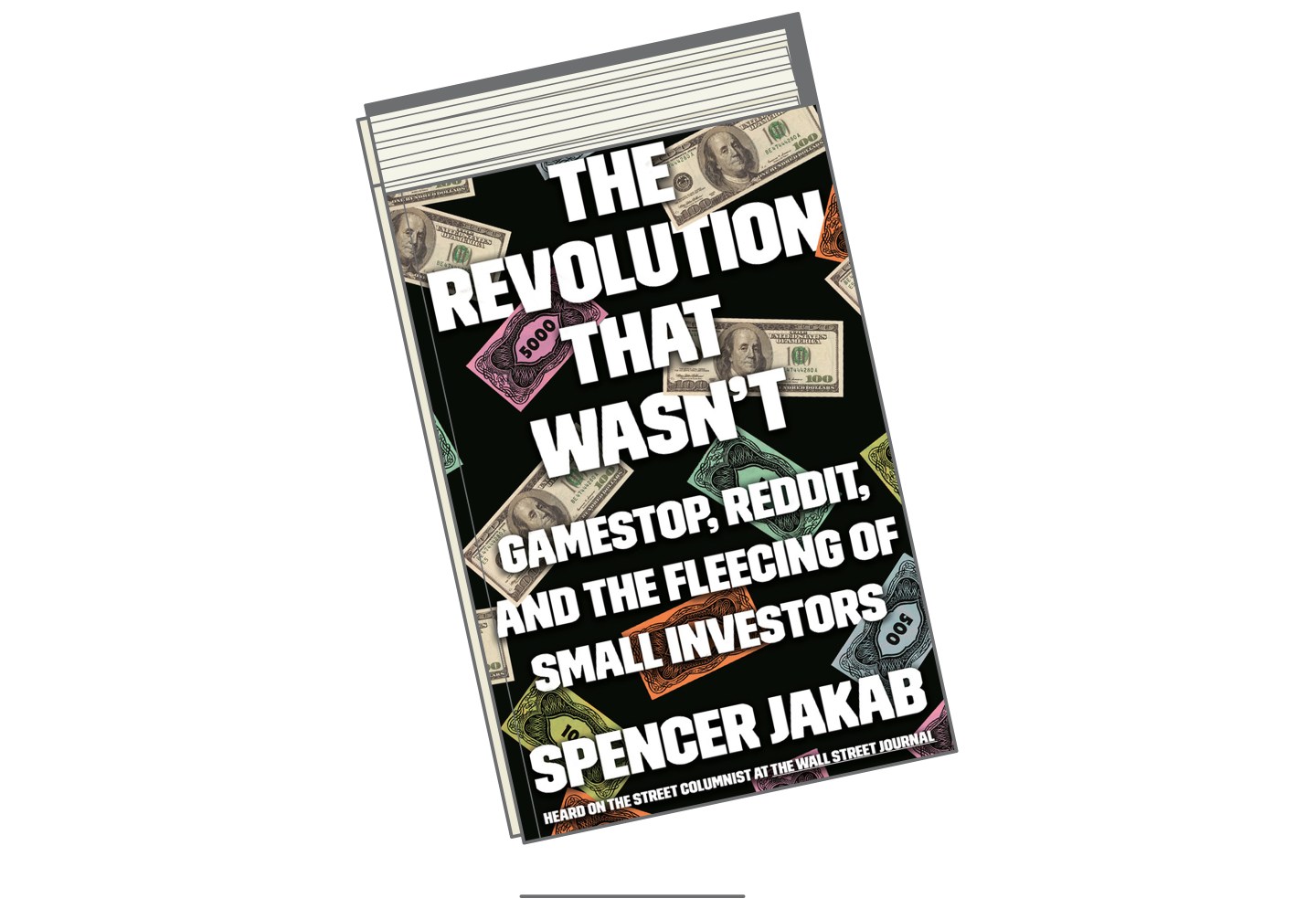Meme stocks are the gifts that keeps on giving—for Wall Street, that is

If somebody had told me last January that I would spend the rest of the year writing a book about GameStop, I would have questioned their sanity.
As the father of three video game crazy sons, I probably thought about the fading retailer more than most people, but it still wasn’t very often. That all changed on the morning of January 25th when my oldest boy informed me that one of his friends had read about its shares on Reddit’s r/wallstreetbets forum and doubled his money in a couple of days. I had seen dozens of stocks spike after being mentioned on the forum. It was when I suggested his friend shouldn’t push his luck and was told that he wouldn’t sell for any reason that I began to suspect something very strange was happening.
GameStop’s journey to Blockbuster Video-like irrelevance was so obvious that it seemed like every hedge fund manager on Wall Street had piled into a bet that its share price was eventually headed to zero. Suddenly that was the attraction: The pros found themselves facing a group that wasn’t interested in cash flows or when the next Xbox was coming out or, in many cases, if they even made money on the stock. The point was to make those hedge funds lose lots and lots of it.
That they did. There were more than two million members of r/wallstreetbets by that day and the group’s membership would quadruple within a couple of weeks as they shocked the financial establishment. Some users had grasped that investment funds were exposed to unlimited losses because they had engaged in a technique called “short selling” that allowed them to profit if stock prices fell—the opposite of what most investors do.
With brokers like Robinhood allowing inexperienced traders to buy stocks using borrowed money and to employ derivatives that acted like a force multiplier, the amateurs had the means to do some serious damage. They also had the motive. There was a lot of resentment in America at wealth inequality and what seemed like two sets of rules—some for the rich and connected and others for everybody else.

Secretly setting up a stock market corner in which you squeeze a short seller dry by snapping up all the available shares was the sort of thing that happened all the time in 1921, but not in 2021. It has long been illegal. But what if, instead of a few rich people doing it behind closed doors, a few million strangers with small accounts did it in full public view? Even if regulators cried foul, what on earth were they going to do about it?
Not that they were paying attention as the wave was gathering strength. Neither were big fund managers. They were too busy staring at their Bloomberg terminals to waste time scrolling through memes on Reddit. If they had, they would have seen newly minted speculators with chips on their shoulders writing entries like “the biggest short squeeze of your life” and “Bankrupting Institutional Investors for Dummies.”
And then it got weirder. As cascading losses and surging volume threatened to overwhelm not just those funds but the very plumbing of the financial system, the game was put on hold. Suddenly brokers like Robinhood suspended the ability to buy more of the stocks that were on everybody’s lips. No such restrictions were placed on the fat cats, though. The game was rigged!
But it always has been. Aside from a handful of funds that lost big that week, the financial sector was loving it. Politicians on the left and right and even late night talk show hosts were outraged that Wall Street had circled the wagons to protect itself. The reason was mostly technical, though—not a conspiracy.
David and Goliath stories are music to the industry’s ears. A meme-loving retail-investor army pulling one over on the big guys? People posting screenshots of their brokerage statements showing 5,000% gains? Wall Street feels about as badly about someone walking away with millions of dollars of “its” money and crowing about it as Las Vegas does—not at all. It is why lights and sirens go off when someone hits the jackpot. Eras when small investors believe that they are outfoxing the so-called smart money is when the financial services business really thrives.
The industry had been worried about its profits drying up as its customers embraced cheap, simple index funds. But the advent of zero dollar commissions combined with millions of locked down and bored young people who opened brokerage accounts with their stimulus checks and took their cues from financial influencers suddenly brought a fresh wave of cash their way. Contrary to what GameStop and AMC fans think, even hedge funds love to see them show up in droves.
The headlines a year ago would have had you believe that meme stock mania terrified Wall Street. The truth is that it gave many parts of it a fresh lease on life.
Adapted from The Revolution That Wasn’t: GameStop, Reddit, and the Fleecing of Small Investors by Spencer Jakab, published on January 25, 2022 by Portfolio, an imprint of the Penguin Publishing Group, a division of Penguin Random House, LLC. Copyright © 2022 by Spencer Jakab.